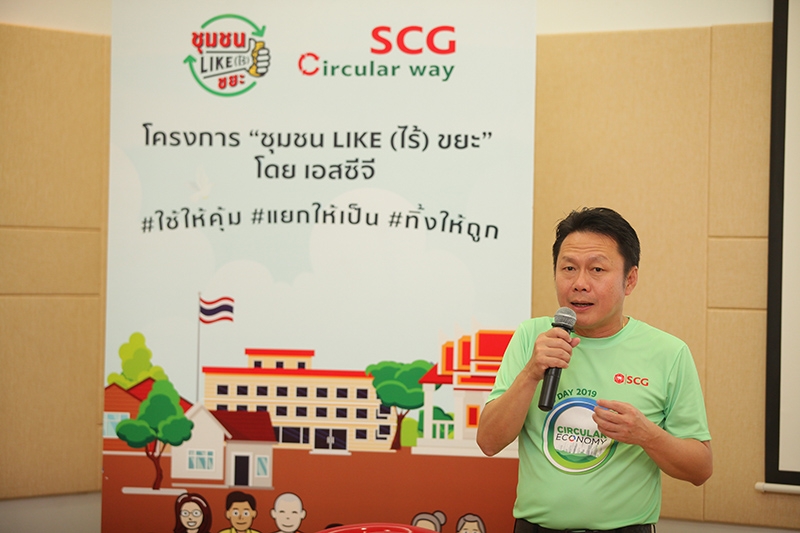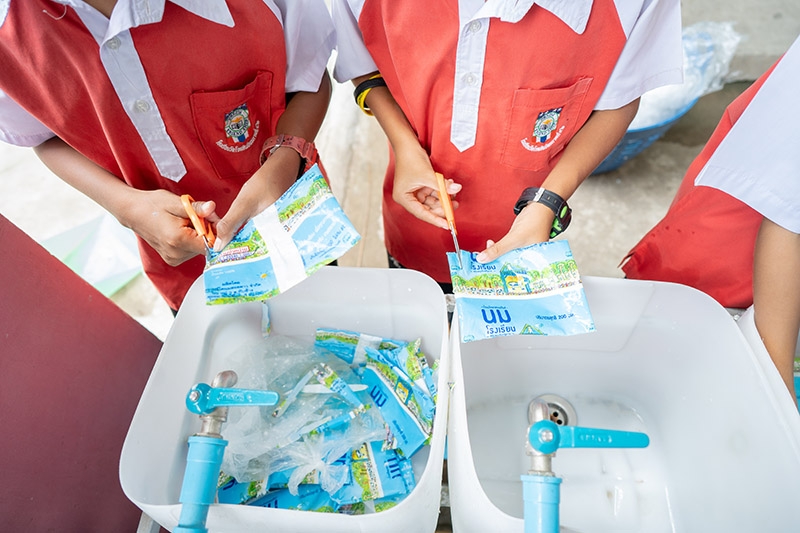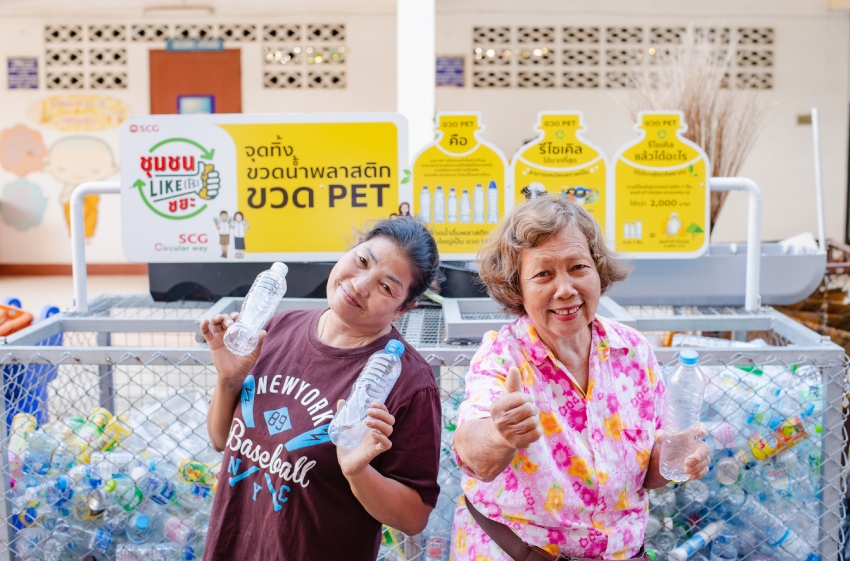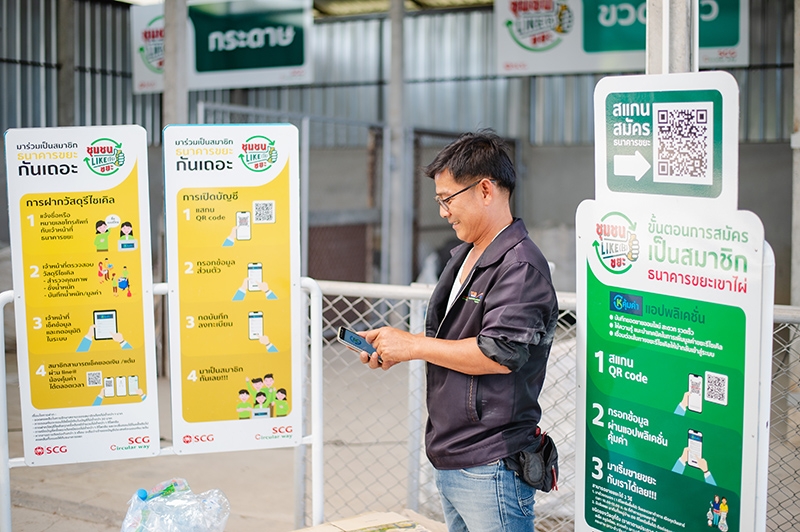Similar to other developing countries, one of the challenges Thailand facing is solid waste management. According to the 2019 report by Ministry of Natural Resources and Environment, the country approximately produces 28 million tonnes of wastes per year. Bangkok and the provinces which are popular for tourists were ranked first and second respectively. The capital alone accounts for a whopping 20 percentage of the nation’s solid waste generation. Of that, there were 2 million tonnes of plastics and only 0.5 million tonnes of which were recycled. Most of the plastic wastes left unmanaged and uncontrolled enters waterways continuously having long-term impacts on food chain in marine ecosystem.
Realising the importance of the issue that exerts tremendous effect on environmental sustainability and human well-being, SCG has thus initiated the Waste-free Community Project and devised an at-source waste management model driven by a network of homes, temples, schools and waste banks. Integrative as it is, the initiative helps cultivate knowledge and understanding of waste minimization, segregation and recycling.
Mapping Benefits: Circular Economy and Waste Management
For sustainability, SCG is highly committed to the principle of circular economy that promotes the effective management of natural resources and recycling. As for the waste management issue, the company came up with the Bang Sue Model in 2018. It is an at-source waste management programme initiated at SCG headquarters to educate the staff and encourage them to adopt the habits of resource maximization, correct sorting and proper disposa of waste. The model devised by SCG also covers the development of internal waste management schemes that adds value to managed wastes and reduces a 20-ton per month waste generated in the organization. Additionally, emissions of greenhouse gases have fallen by around 50% thanks to this model.
The Success Powered by Waste-free Communities
Using the lessons drawn from the Bang Sue Model, SCG has introduced the successful initiative to the target areas in the hope of promoting the sustainable solution for waste management. The company in partnership with Rayong’s local government agencies has expanded the waste-free initiative to communities across the province. Participating in the project are communities from Map Ta Phut Municipality including Khod Hin 2, Khod Hin Mittraphap, Wat Khod Hin Mittraphap 42 School, Khao Phai, Wat Khao Phai and Khao Phai Waste Bank. This shows a clear depiction of how the Bang Sue Model was put into practice, effectively and wisely coordinating every party of waste management value chain at local level through an existing home-temple-school network. Considering the key sources of waste generation in Rayong communities, SCG has linked them with waste banks that serve as a collection point of all wastes generated from the households. The project focuses on educating residents on waste separation through local thought leaders including a community leader, an abbot, students as well as SCG employees. In addition, it promotes recycling and minimises the volume of wastes sent to landfills.
Creative Tools to Better Manage Waste
Waste banks play a crucial part with regard to the effective waste management at the community level. Accordingly, the Khao Phai waste bank was founded in 2011 and the point has been a destination of the wastes produced in the Khao Phai Community and its surrounding suburbs that accounts for 2,400 households. Apart from the large amount of sorted wastes transported to the site every month, it is time-consuming to process the data. To overcome the issue, SCG has developed an application “KoomKah” to help streamline waste bank management holistically. The web application consists of 5 key features:
- Buy to record waste data and calculate trading amount;
- Membership Management to collect membership data and history of point redemption and collection;
- Sell to record sell data and calculate revenue and profits from trade;
- Inventory Management to organize waste category, cost and point collection from Buy segment for trade strategy improvement; and
- Report to help user evaluate data and download excel file for further analysis.
Currently, the Waste-free Community Project powered by the home-temple-school-waste bank network and the KoomKah application has been in place for one year. With over participating 80 households, over 6,500 kilograms of wastes was recycled in the initial phase. The SCG-sponsored waste management initiative also helps cut down on the amount of waste getting shuttled off to landfills. For 2020, SCG expects to welcome to the Waste-free Community Project 700 additional households and three more communities, namely Islam, Wat Chak Lookya, and Map Chalut-Chak Klang Communities and will continue to support community leaders in advancing sustainable waste management.








